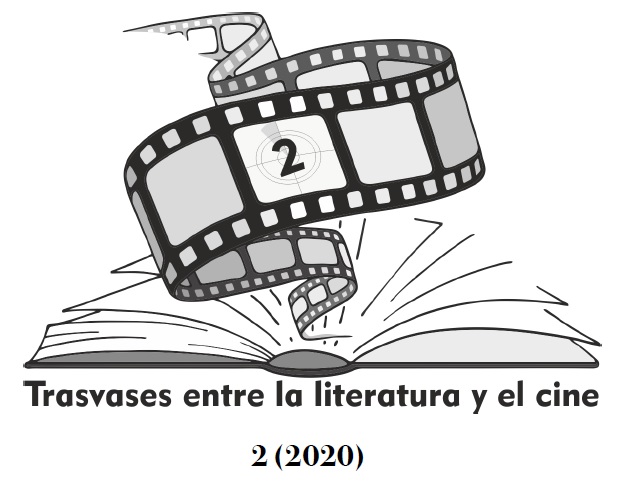Tula without censorship: a survey of the «other version» of Miguel Picazo’s classic
DOI:
https://doi.org/10.24310/Trasvasestlc.vi2.8662Keywords:
Film adaptation, screenplay, Tula, Unamuno, Picazo, censorship, García Escudero, New Spanish CinemaAbstract
Since its success at the San Sebastián International Film Festival (1964), Miguel Picazo's La tía Tula has become one of the milestones of the “New Spanish Cinema” and, over time, one of our classics. However, as García Escudero himself predicted, General Director of Cinematography during those years of “openness” of the Franco regime, the prejudice of having been censored in excess has not ceased to accompany the film, almost as an attribute already inherent to it. Moreover, the fact that the censored negatives were destroyed would have only contributed to this legend. In this study, we intend to compare the film that has reached us with the script published in 2005 on the occasion of the 40th anniversary of its premiere. In doing so, we will take into account not only the scenes and shots cut by the censorship, but also all the modifications made by Picazo himself in his task of staging his work. Our journey will reveal a more complex and nuanced version of the main characters, as well as a much more detailed, incisive and even scathing portrait of the provincial society of the early sixties.
Downloads
Metrics
Publication Facts
Reviewer profiles N/A
Author statements
Indexed in
-
—
- Academic society
- N/A
- Publisher
- Universidad de Málaga
References
CABAÑAS ALAMÁN, Fernando J. (2001), Cancionero Musical de Castilla-La Mancha, Cuenca, Universidad de Castilla-La Mancha.
CASTRO, Antonio (1974), «Declaraciones de Miguel Picazo a Antonio Castro», en El cine español en el banquillo, Valencia, Fernando Torres Editor, pág. 332.
GARCÍA ESCUDERO, José María (1978), La primera apertura. Diario de un director general, Barcelona, Planeta.
HERNÁN, José Miguel (2005), «Sobre la adaptación», en M. Picazo et al., La Tía Tula. Guión cinematográfico, Jaén, Diputación Provincial de Jaén, págs. 43-44.
HERNÁNDEZ BURGOS, Claudio (2013), «Misioneras de la patria. Las mujeres de Acción Católica durante el primer franquismo (1936-1951)», en VII Encuentro Internacional de Investigadores del Franquismo, Barcelona, CEFID-UAM (CD-ROM).
HERNÁNDEZ, J. (2003), «Miguel Picazo. El reverso de la España idealizada», en C. F. Heredero y J. E. Monterde (coords.), Los «nuevos cines» en España. Ilusiones y desencantos de los años sesenta, Valencia, Ediciones de la Filmoteca, págs. 319-331.
IZNAOLA, Enrique (2004), «Miguel Picazo, un cineasta jiennense», Entrevista en E. Iznaola (coord.), Miguel Picazo, un cineasta jiennense, Jaén, Diputación Provincial de Jaén, págs. 15-58.
LAURIE, Edith (1965), «New changes on the Spanish Film Scene», Film Comment, 2/4, págs. 37-40.
MARTÍNEZ, Josefina (2006), «El cine tardofranquista, reflejo de una sociedad», en A. Mateos López y Á. Herrerín López (coords.), La España del presente: de la dictadura a la democracia, Madrid, Asociación Historiadores del Presente, págs. 333-352.
MOLERO, Julián (2015), Batería, guitarra y twist, Madrid, La Fonoteca.
MONLEÓN, José (1964), «Miguel Picazo después de La tía Tula», Nuestro cine, 31, págs. 42-48.
MORENO SECO, Mónica (2003), «De la caridad al compromiso: Las mujeres de Acción Católica (1958-1968)», Historia Contemporánea, 26, págs. 239-265.
NAVARRETE-GALIANO, Ramón (2007), «Cine y Literatura: Compromiso Social. Un ejemplo: La Tía Tula de Miguel Picazo», en F. Sierra Caballero (ed.), IX Congreso Ibercom. Iberoamérica: comunicación, cultura y desarrollo en la era digital, Sevilla, Universidad, págs. 1-20.
OCAÑA, Javier (2004), «Retrato de una dama reprimida», en E. Izanola Gómez (ed.), Miguel Picazo: un cineasta jiennense, Jaén, Diputación Provincial de Jaén, págs. 193-194.
PICAZO, Miguel et al. (2005), La Tía Tula, guión cinematográfico, Jaén, Diputación Provincial de Jaén.
RODRÍGUEZ MARTÍNEZ, Joaquín (1992), Conversaciones con Aurora Bautista, Orihuela, Diputación Provincial de Alicante.
UNAMUNO, Miguel de (1920), Tres novelas ejemplares y un prólogo, Madrid, Espasa-Calpe.
UNAMUNO, Miguel de (2003), La tía Tula, ed. de C. A. Longhurst, Madrid, Cátedra.
VAQUERIZO GARCÍA, Luis (2014), La censura y el nuevo cine español: Cuadros de realidad de los años sesenta, Alicante, Universidad.
VAUCHEZ, André (1988), La sainteté en Occident aux derniers siècles du Moyen Age d’après les proces de canonisation et les documents hagiografiques, Roma, École Française de Rome [En línea: https://www.persee.fr/doc/befar_0257-4101_1988_mon_241_1. Fecha de la consulta: 10/02/2020].
Downloads
Published
How to Cite
Issue
Section
License
All authors published in this journal accept the following copyright terms:
a. Authors retain their authors´ rights (copyright) and grant First Publication Rights to the journal, which whill be published under a the Creative Commons Attribution-NonCommercial-ShareAlike 4.0 International (CC BY-NC-SA 4.0) license. All about this license is available in the following link: <http://creativecommons.org/licenses/by-nc-sa/4.0>
b. Authors may separately establish additional agreements for the non-exclusive distribution of the version of the work published in the journal (e.g. including it in an institutional repository, or publishing it in a book) with an acknowledgement of its initial publication in this journal.
c. Authors are allowed and encouraged to disseminate their work electronically (e.g. in institutional repositories or on their own website) as this can lead to productive exchanges, as well as earlier and more extensive citation of published work.
The author is responsible for obtaining permission from the copyright holder when using copyrighted materials.
This electronic journal is published by University of Málaga (UmaEditorial), thus it is necessary to cite the origin of any partial or total reproduction.








22.png)










